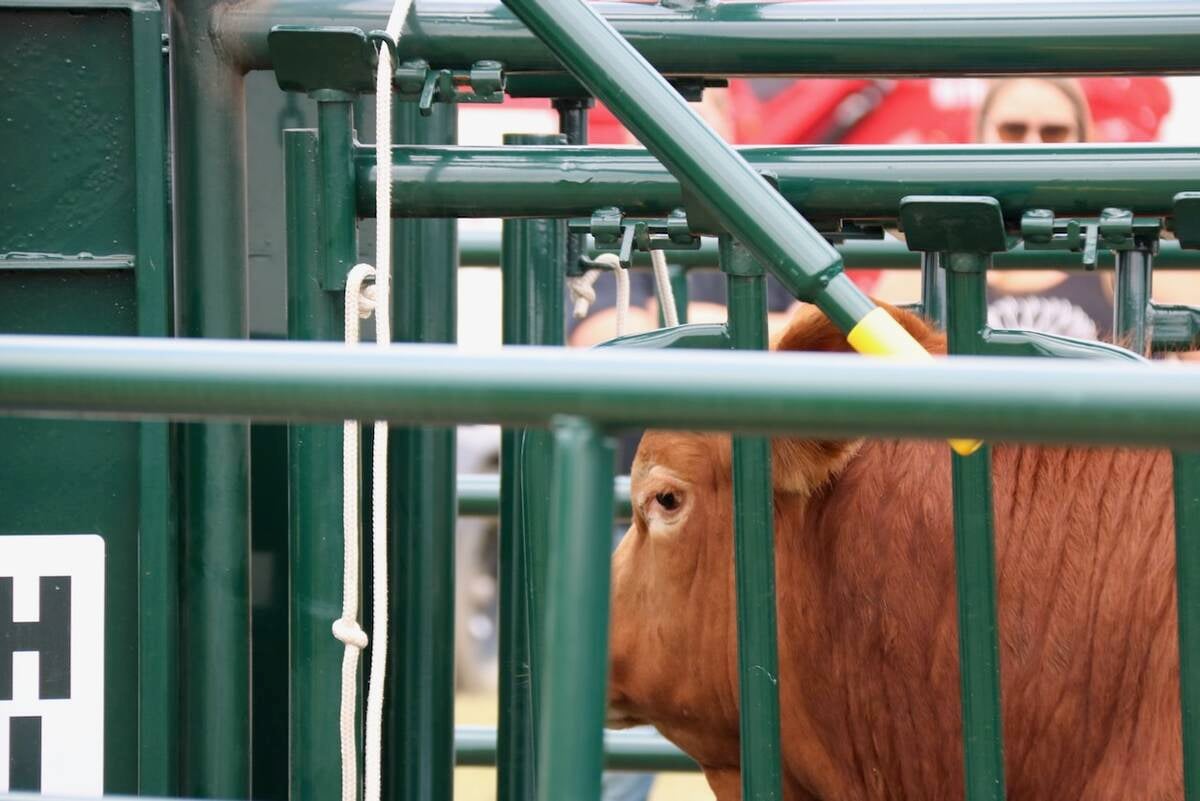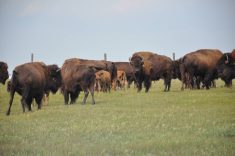HALIFAX – Canadian cattle industry leaders are resigned to the introduction of a country-of-origin labelling rule for food sold in the United States by autumn 2008 and they are frustrated the Canadian government has not been more vigorous in opposing it.
On Aug. 16 during the Canadian Cattlemen’s Association summer annual meeting, the CCA foreign trade committee said the federal government should let the U.S. Congress know that Canada will challenge any imposition of COOL rules as a violation of trade obligations.
“It clearly would be a violation of American obligations under the NAFTA (North America Free Trade Agreement) and maybe under WTO (World Trade Organization),” said Darcy Davis, chair of the CCA committee.
Read Also

Good handling equipment a must on cattle operations
It’s important for the safety of producers and everyone else dealing with their stock that handling equipment is functional and safe.
“It is frustrating to us that the government has not given this issue more priority and raised the volume more,” he said in an interview.
During the committee meeting, Ottawa-based CCA government relations official John Masswohl said that with the Democratic Party controlling Congress since 2006 elections, country-of-origin is on the way.
“Some form of labelling is certainly coming in fall ’08,” he said. “It will create costs for us and it will cause a price differential on live cattle going south.”
COOL was included in the 2002 U.S. Farm Bill but never implemented because it was opposed by the Republican majority in Congress, the Republican president and Republican-aligned National Cattlemen’s Beef Association (NCBA).
The new Democratic Congress, aligned with the pro-COOL U.S. National Farmers Union, is determined to revive the idea in the new farm bill being written this year.
The CCA and Canadian officials say it is thinly disguised protectionism.
The rule could force retailers to reserve “product of the U.S.A.” labels for products from cattle born, raised and slaughtered in the U.S.
Meat that potentially contains foreign product would have a “may contain” label.
Masswohl said if there is a consumer backlash against product that may be imported, it could put pressure on American packers to stop buying Canadian cattle for slaughter and processing so they can label all product as American-made. It would reduce the demand for Canadian live cattle and lower prices.
But CCA president Hugh Lynch-Staunton said it may be a development that Canadian exporters can exploit. If Canadian beef can be positioned as better or more trustworthy because of a superior Canadian traceback, food safety and grading system, it may be an advantage.
“We have heard for years differentiating our product will be an advantage for us,” he said. “Now, the Americans are going to do it for us.”
Still, industry leaders say COOL rules could cost them hundreds of millions of dollars and reduce exports of live animals.
The CCA and the Canadian Pork Council have issued a joint statement condemning the impending COOL rules.
Lynch-Staunton also signed a joint declaration with the American NCBA and a national Mexican cattle lobby calling for Congress to drop its plans for new labelling rules.














